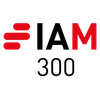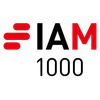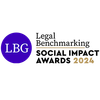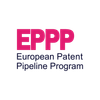
Jamie Ingram
European Patent Attorney
Jamie Ingram’s scientific background ranges from medicinal chemistry to microbiology, from organic synthesis to drug design and development. He has extensive experience in the isolation and purification of mammalian, bacterial and viral proteins; as well as experience studying the activity, manipulation and modification of genes, proteins, cellular membranes, and cells.
Jamie qualified as a European Patent Attorney in July 2023 after joining Murgitroyd in 2017. Here, he thoroughly enjoys meeting with inventors from academia or industry to discuss their inventions, drafting patent applications and prosecuting them. In addition, Jamie provides seminars, guides and workshops to academics and R&D staff to promote knowledge in relation to intellectual property.
Jamie’s doctorate was multi-disciplinary; involving microbiology, chemical biology and medicinal chemistry. It concerned using phage display as a high-throughput screening platform to identify inhibitors and activators of two human protein targets involved in pain, cancer and memory. The majority of the research concerned viral and bacterial cloning, protein expression and purification; and the development and testing of novel in vitro assays to assess the lead compounds. Prior to that, Jamie finished his masters at the University of Leeds top of the year with Distinction. His research project at Leeds involved the in silico design and subsequent organic synthesis and testing of blood clotting factor inhibitors and probes.
Jamie is part of the Chemistry and Biotechnology arm of Murgitroyd’s patenting section, and predominantly works with patent applications concerning peptide- and protein-based therapies, nucleic acid-based therapeutics, diagnostic assays and medical devices.
Jamie is based in our Glasgow office.
- Medicinal chemistry
- Chemical biology
- Biotechnologie
- Microbiologie
- Sciences de la vie
- Peptide therapies
- Nucleic acid therapeutics
- Cellular technology
- Bacterial and viral expression
- Phage display
- Protein expression
- Gene editing
- Gene therapy
- Cloning
- Recombineering
- CRISPR
- Transfection
- Organic synthesis
- Drug design
- Drug development
- Second medical use
- Immunotherapies
- Diagnostic assays
- Screening assays
- Traitements anticancéreux
- Pharmaceutical technologies
- Dispositifs médicaux


















